The future of insect farming from the job role point of view
We are quite often asked about the future of our industry. For some reason people think we may have a magic mirror that enables us to see what the future holds for this industry. And we do ponder that among ourselves, too, it is after all a key ingredient in making this company and the whole industry a success story worth telling your grandchildren. “Your grandpa / grandma was a visionary!”
As we really don’t have a magic mirror, we decided to ask AI instead. As AI is also not a magic tool for predicting the future, we approached the question from a slightly easier point of view – what are the future skill and job titles needed to succeed in this industry?
And this is what the magic AI thinks the future roles within insect industry may be.
- Entomoculturist: Specializes in the breeding and rearing of insects for various purposes, such as food, feed, or industrial applications.
- Insect Nutritionist: Develops optimal diets for insects to ensure their growth, health, and nutritional value for human or animal consumption.
- Insect Farm Manager: Oversees the day-to-day operations of an insect farm, including breeding, feeding, harvesting, and quality control.
- Insect Bioconversion Engineer: Designs and implements systems to utilize insects for bioconversion processes, such as converting organic waste into valuable products like protein-rich insect meal or fertilizer.
- Insect Product Developer: Creates new insect-based products for human consumption, such as protein bars, snacks, or alternative protein sources for vegetarian and vegan diets.
- Insect Genetics Specialist: Conducts research on insect genetics to improve desirable traits such as growth rate, disease resistance, or nutritional content.
- Insect Health and Welfare Officer: Monitors and ensures the well-being of insects in farming operations, implementing practices to prevent disease, stress, and other health issues.
- Insect Marketing Specialist: Develops marketing strategies to promote insect-based products to consumers, addressing concerns and misconceptions while highlighting their nutritional and environmental benefits.
- Insect Policy Analyst: Analyzes regulatory frameworks and develops policies related to insect farming, addressing issues such as food safety, environmental impact, and animal welfare.
- Insect Technology Innovator: Explores and develops new technologies to optimize insect farming processes, such as automation, precision farming, or genetic engineering.
- Insect Waste Management Consultant / Specialist: Advises on efficient and sustainable management of insect farm waste, including composting, bioconversion, and recycling. Develops systems to efficiently utilize insect biomass and byproducts, such as composting or bioconversion processes, for waste management and resource recovery.
- Insect Farming Educator: Provides training and educational programs on insect farming practices, techniques, and benefits for farmers, entrepreneurs, and agricultural professionals.
- Insect Breeder: Focuses on selectively breeding insects to enhance desirable traits such as size, reproduction rate, or nutritional content.
- Insect Biotechnologist: Utilizes biotechnological techniques to modify insects for specific purposes, such as producing valuable compounds or enhancing resistance to diseases.
- Insect Product Designer: Designs innovative products using insect-derived materials, such as clothing, packaging, or construction materials.
- Insect Farm Technician: Works on the technical aspects of insect farming, including maintaining equipment, monitoring environmental conditions, and ensuring the health and welfare of the insect population.
- Insect Research Scientist: Conducts research on various aspects of insect biology, behavior, and physiology to improve farming techniques, develop new products, or explore novel applications.
- Insect Quality Assurance Manager: Implements and manages quality control measures to ensure that insect products meet safety, regulatory, and quality standards for human consumption or other uses.
Sound like career paths worth considering and skills worth learning?
